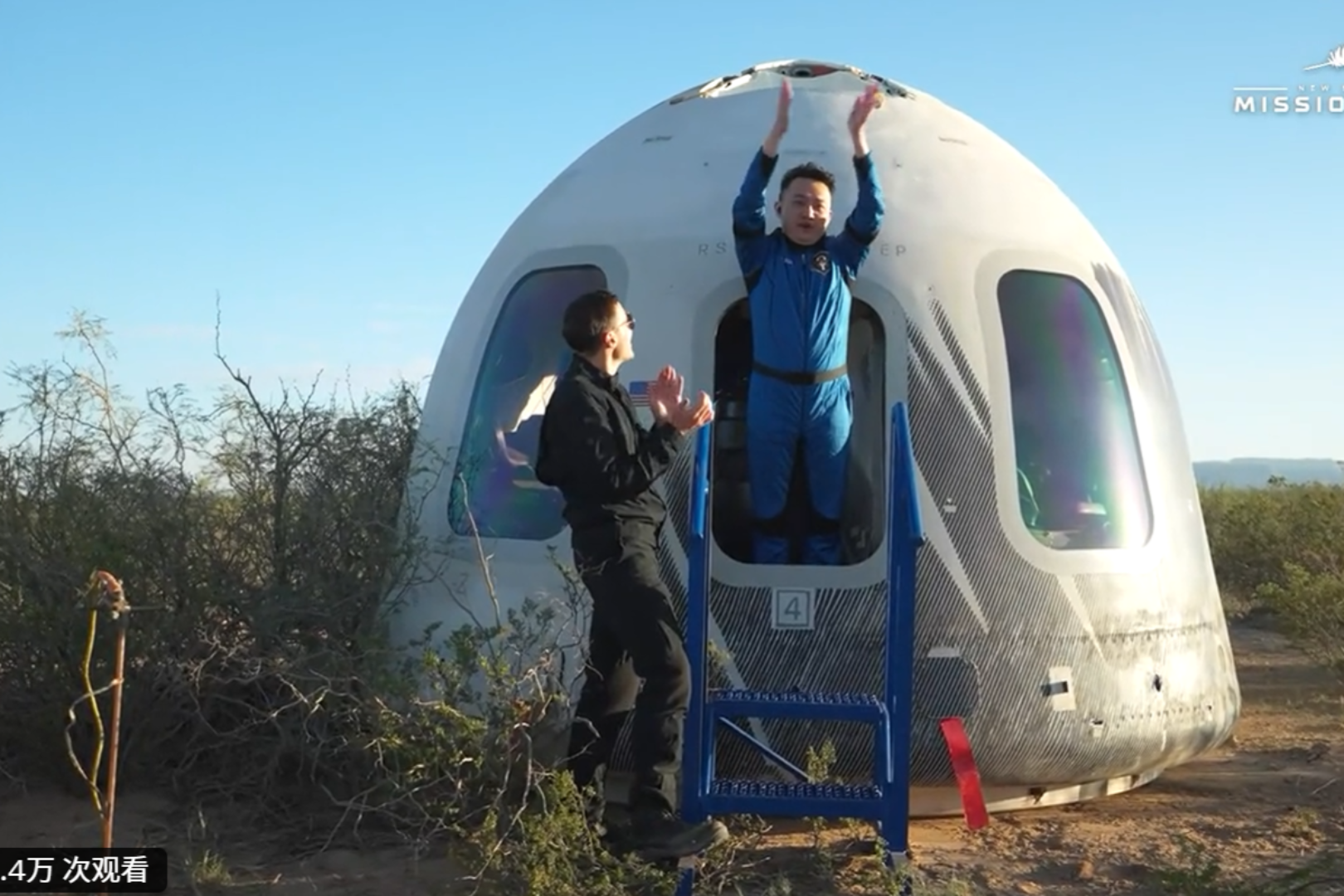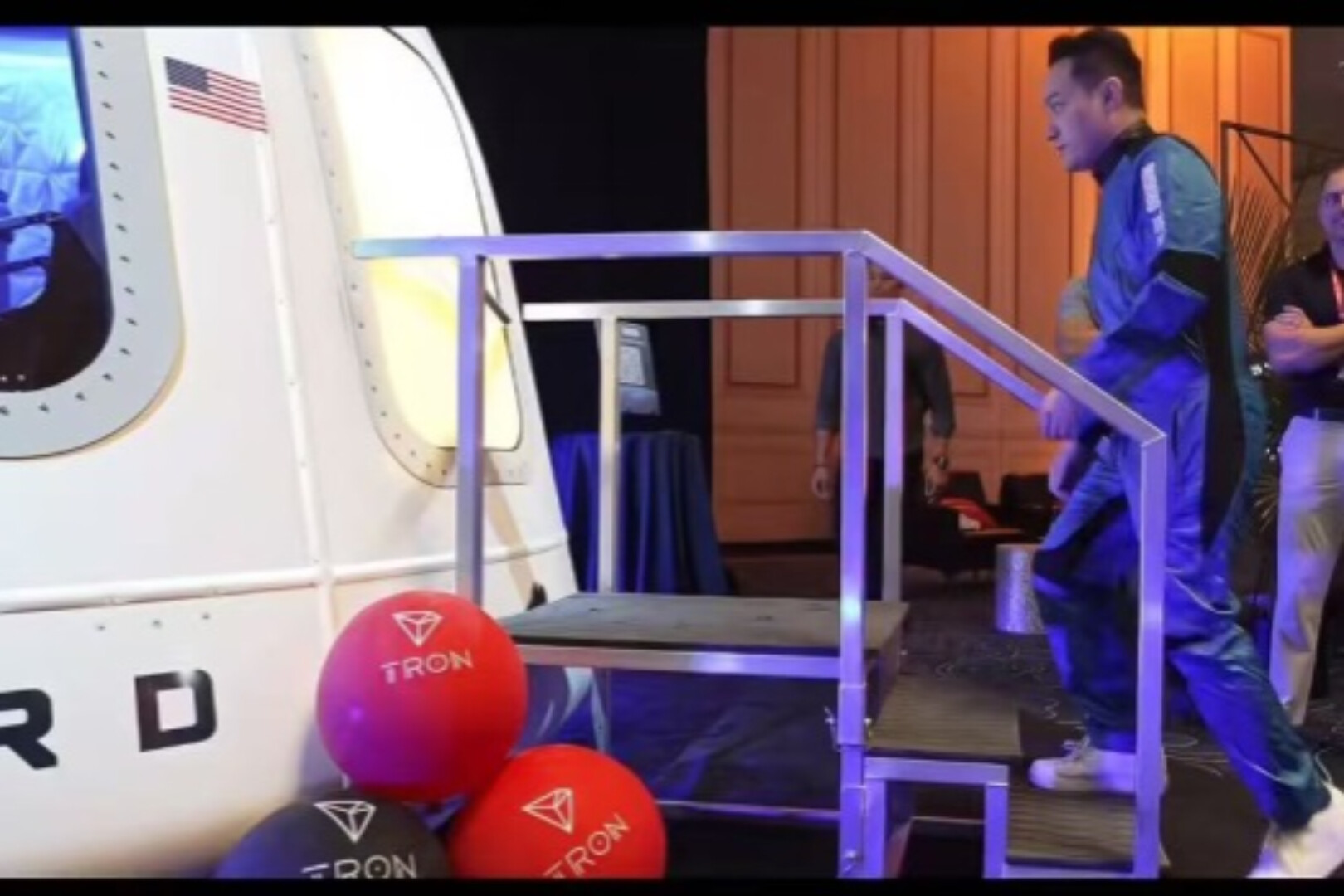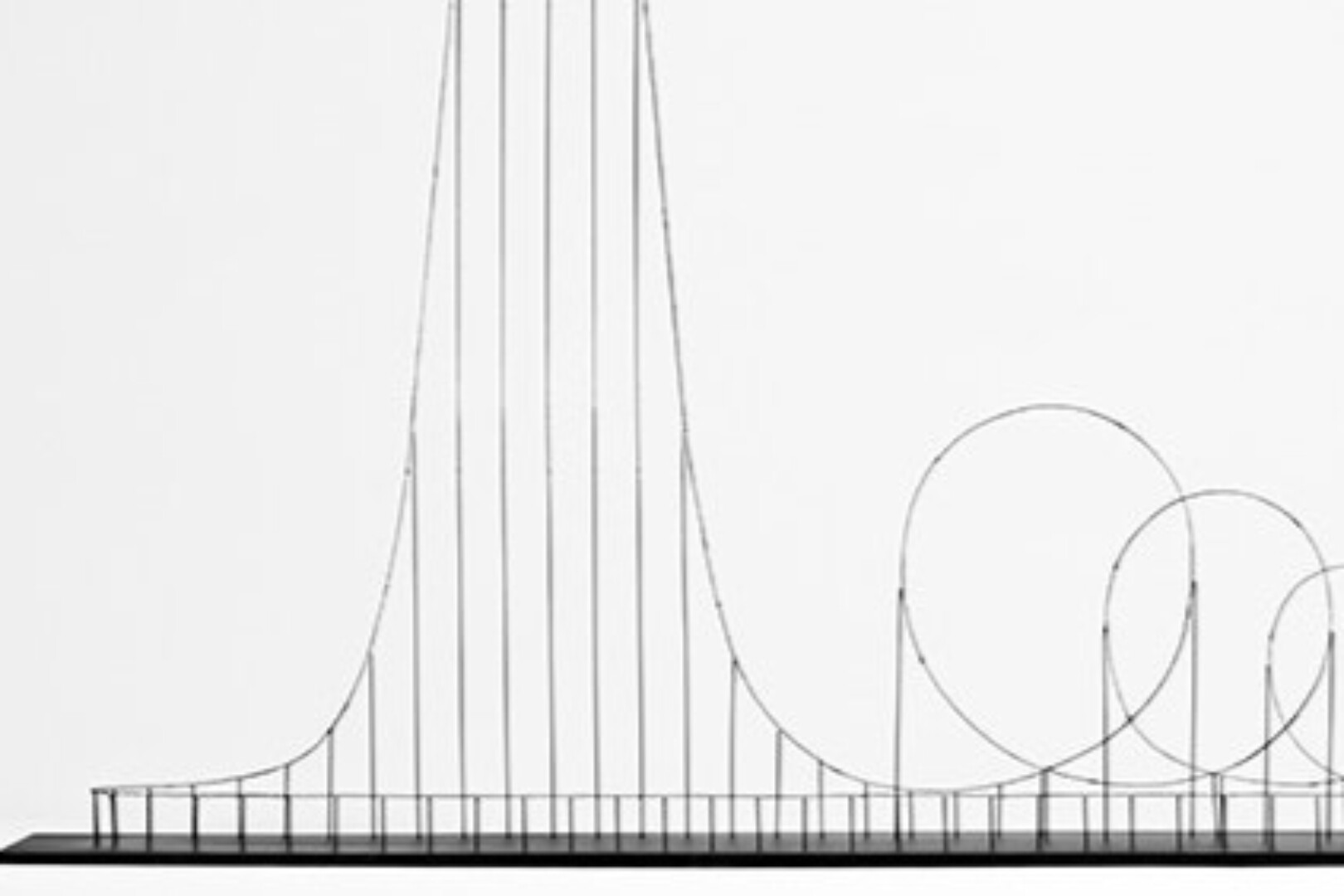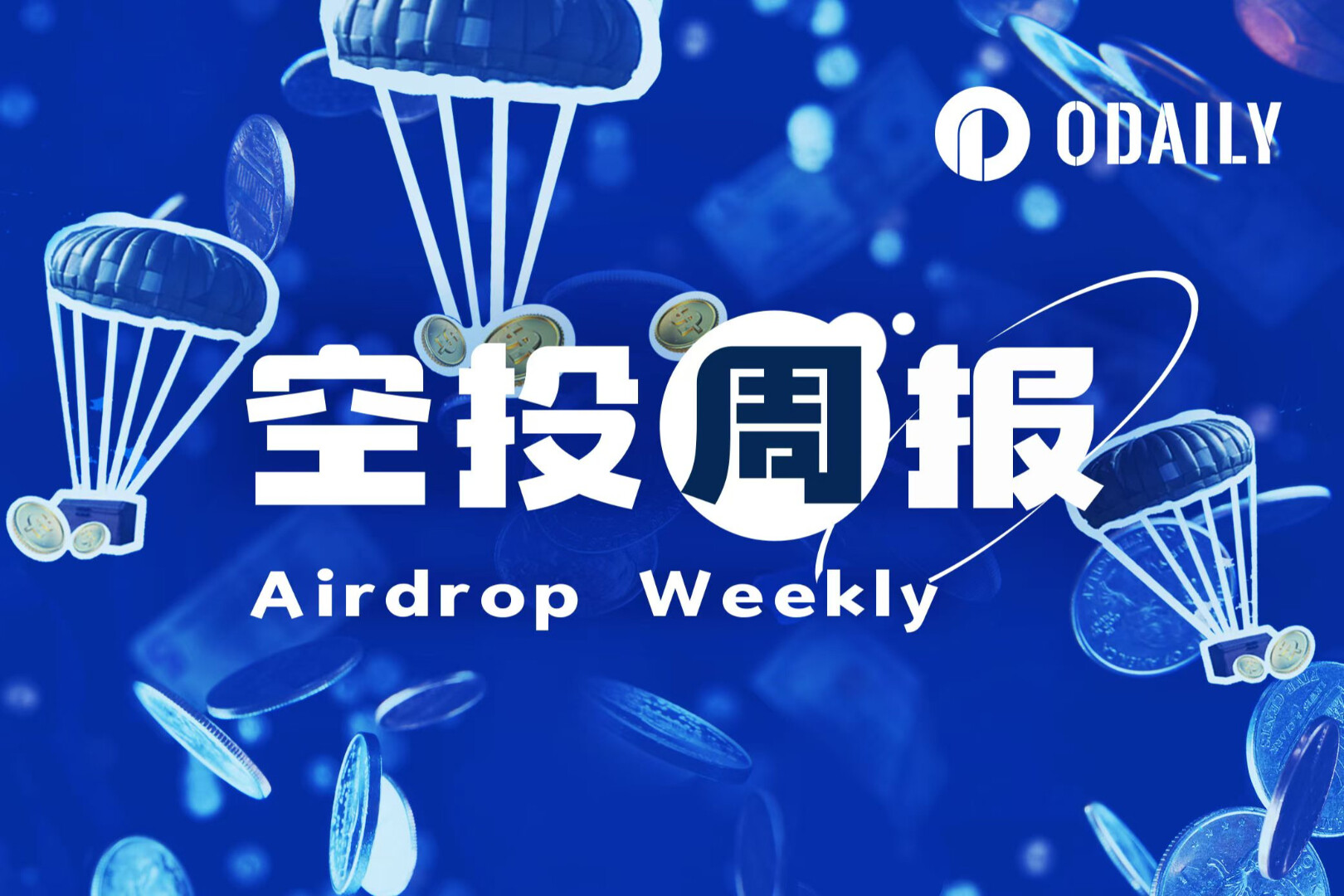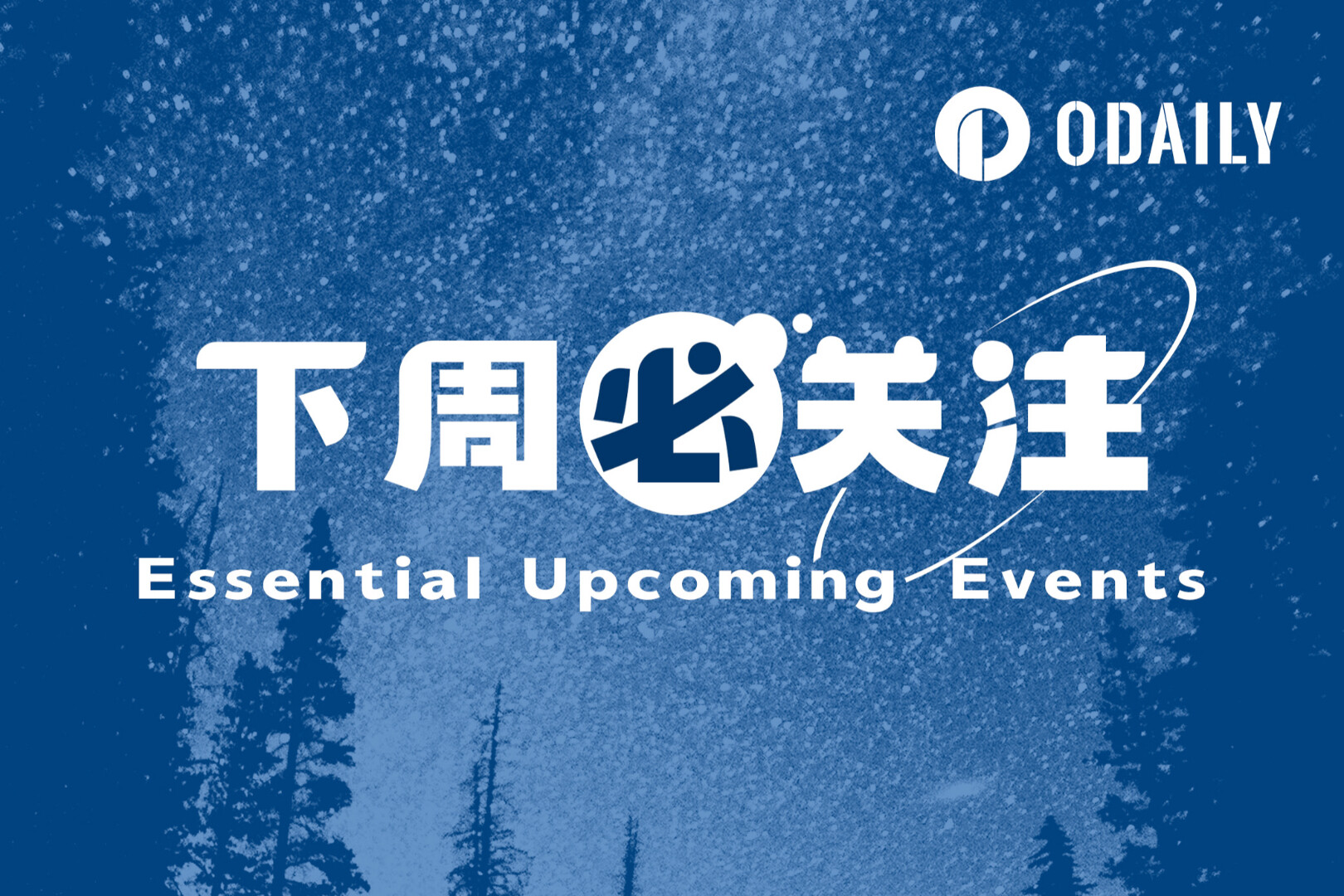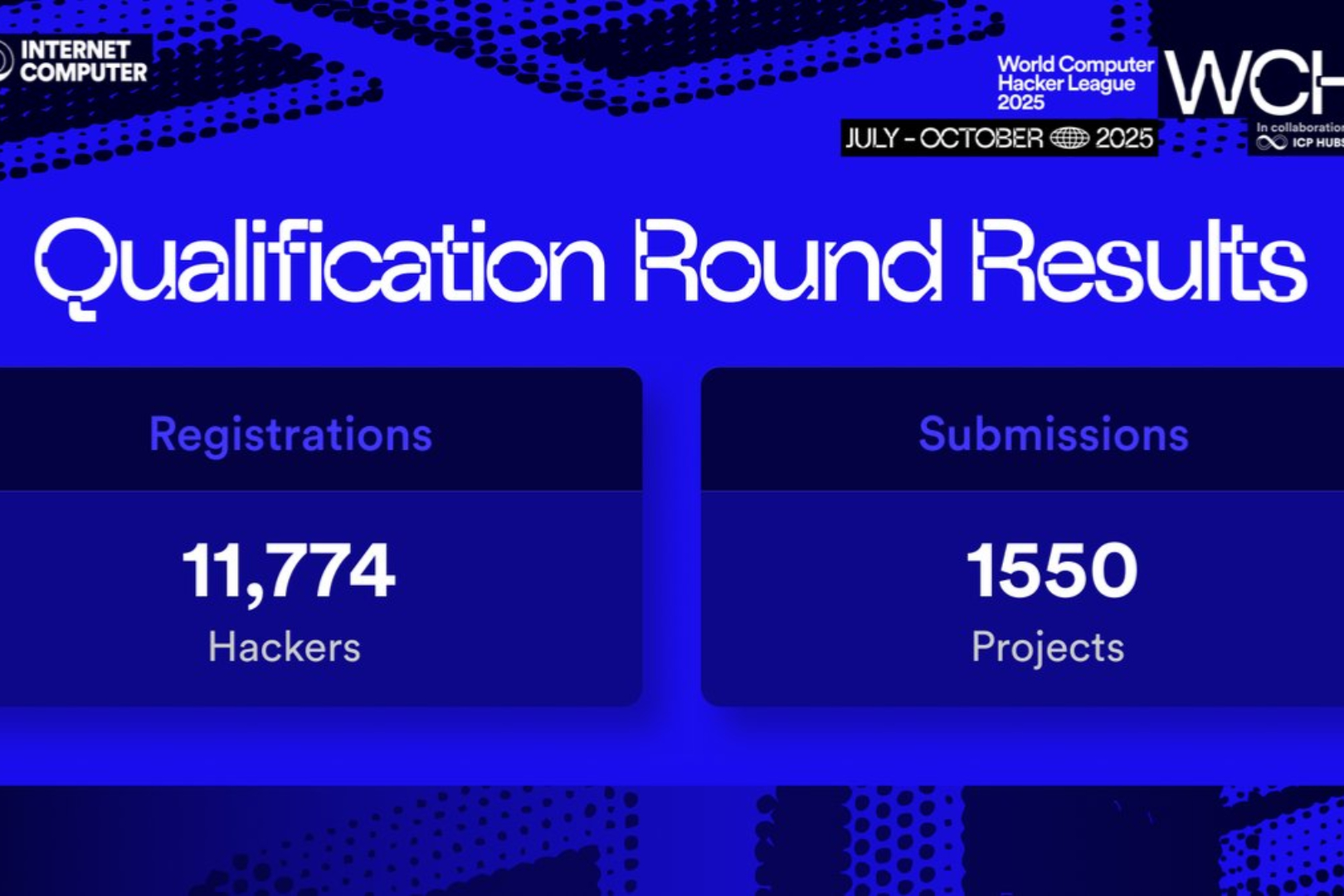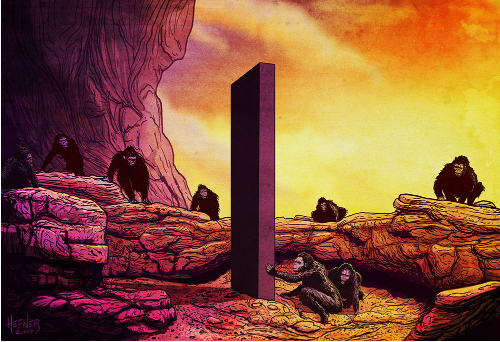
The Monolith and the Ape Men 2001 A Space Odyssey, by Hal Hefner
image description
Author: Typto
DAO is what the community should look like in the Web3 era, so the following content will no longer emphasize DAO, and they are all called communities.
A community is a gathering of people who share common values and visions, respect each other, support each other, and work toward a common goal while benefiting all members (spiritual and material).
The community builds and communicates our cultural consensus. No one will really love a community if it's only about money transactions.
I have a wish, I hope to build a real community, and I will work hard for it all my life. But what should a community look like specifically, and how do we get there? This is a relatively grand topic. Today I want to talk about governance rights.
I have been thinking about a question, what kind of governance is more perfect for the community, what do we use to represent our governance rights, and how to quantify it, how to obtain it, and how to use it.
Groups are not communities.
secondary title
Governance troubles
At present, there are two types of tokens that represent our governance rights in a certain project or community: Token and Share. Aragon and DAOhaus provide typical frameworks for these two types, respectively.
Token means that as long as you hold Token, you will naturally become a member of the community, and at the same time have a corresponding proportion of governance rights (Aragon will automatically add you to the list of Aragon DAO). Share is to assign members Shares representing their governance rights through collective consensus.
Token provides a relatively open market channel, so the way to obtain governance rights is very fast. However, an open market will also direct this governance right to the other side, that is, more Token chips will be concentrated in the hands of traders (even speculators), and the proportion of real community co-builders/promoters/contributors Always in the minority, community governance can easily turn into a power game dominated by money. I am not opposed to the transaction attributes of Token, but how to balance transactions and governance at a healthy level is a question that requires us to think deeply.
Although the existing two schemes have made great contributions to advancing the development of this era, it can be seen that neither of these two schemes is perfect. We are still in the very early days of this era. We need to continue to explore more optimized solutions, optimize the shortcomings of existing solutions, and try new ideas.
secondary title
In my opinion, community governance is not about management, but about building a mechanism for linking and interacting with people so that participants are more willing to walk hand in hand. Regarding governance rights, I think the following two points are very important:
text
The governance rights of the community cannot be represented only by Token, but should be composed of various factors, and Token is one of many factors.
Recognition and contribution do not require permission, and governance rights cannot depend on subjective factors, but should be obtained independently through an open and quantifiable mechanism.
The first point defines what governance should be represented by, which determines who is actually walking with you. The second point defines how we gain governance, which determines how these fellow travelers can join you and move forward hand in hand with you.
So we came up with an idea to build a permissionless contribution agreement, and anyone can obtain his rights (interests and governance rights) in any community through independent contributions in any community. It's all self-running.
Let's see how to implement it.
The goals of the community are different, and the representatives of governance rights are different. Everything needs to revolve around your community goals. For example, if your community is a decentralized trading protocol (like Uniswap), your goal should probably be to provide a better trading experience for the decentralized world. In addition to the protocol Token, it is also necessary for the representative of governance rights to consider LP contributions and product contributions (such as code contributions). Therefore, if Uniswap is taken as an example, its governance rights may be composed of at least the following factors:
Token (UNI)
LP Token
text
product contribution
How to package these factors into governance rights
How do we exchange these governance factors for ultimate governance rights? This is the "permission-free contribution agreement" I just mentioned, which should include quantitative standards and exchange channels. Allow me to explain this process using the DKP, a permissionless contribution protocol that DAOSquare is developing, as an example.
DKP is a module of DAOSquare Incubator, its full name is "DAO Kontribution Pool" (you can imagine DKP in World of Warcraft). Anyone can convert their contribution to DAOSquare into equity here. This is an open, permissionless place to contribute and redeem.
In DKP, the business path is very simple:
Contribution -> Benefits -> Governance RightsContributions are where governance power factors are collected. For DAOSquare, donating to OVO Grants is a kind of contribution, Staking $RICE is a kind of contribution, and of course there are more community contribution factors, such as completing the DAOSquare Incubaotor 101 course, participating in community meetings and actively discussing is also a kind of contribution. In the "Contribution" section, we first need to quantify each contribution category. For example, OVO Grants, we set a ratio of 1:1, which means that if you donate 1 XDAI to OVO Grants, you will get 1 OVO Grants point. It should be noted that different contribution categories require different points, so that you can get a better combination in the "revenue" and "governance rights" parts.
Benefits are where contributions are turned into benefits (remember that sentence? Benefit all participants), benefits include:
text
Investment opportunities to participate in private/public offerings of projects (such as CCO shares)
Limited Edition NFTs
Brand peripherals (such as the trendy T-shirts we are launching with MetaFatory)
event tickets
community permissions
When you get enough points in the "Contribution" section, you can come to the "Revenue" section to redeem some of your benefits, for example: use 100 OVO Grants points plus 300 Stake $RICE points to exchange for a project $1000 CCO share.
Governance rights are the focus of this article. In summary, whether you participate in the donation of OVO Grants in the "Contribution" section or exchange the CCO's share in the "Revenue", you are helping to promote the development of DAOSquare. Therefore, governance rights will collect all the behaviors of "contribution" and "revenue", and package these factors into governance rights NFTs representing different governance weights. Of course, a special factor is also considered here, which is the total record of your contributions. For example, you donated 100 XDAI to OVO Grants and got 100 OVO Grants points, but you exchanged it for a CCO share of a certain project in the "Revenue" section. Being consumed erases the fact that you have contributed to DAOSquare.
How to package contribution factors to obtain governance rights NFT? To take the simplest assumption, a governance NFT representing 1,000 voting rights needs to mortgage 1,000 $RICE plus 5,000 CCO shares of participation history plus 500 OVO Grants points plus 100 community meeting points Plus... (how much more depends on how much your community needs to incorporate).
In addition, we can see that in the DAOSquare community, other contribution factors are as important as holding $RICE, but $RICE is always a prerequisite for everything. Any rights and interests provided in the "income" or "governance rights" part need to hold There is $RICE (stake required). As mentioned in an article I wrote at the beginning of DAOSquare's creation, DAOSquare needs three main roles, missionaries, mercenaries, and merchants. Only by balancing these three, can we realize community drive and promote the development of DAOSquare, and a good Token design is the "panacea" for community drive.
Some time ago, when I told these thoughts to Dekan of DAOhaus, he shared with me the idea of Chuck E. Cheese (a well-known American children's game world) that James Young once mentioned in an article called "Curation Economies". Example, in Chuck E. Cheese:
You can buy tokens with money
Then you can play games with Token
Then you can earn money in the game for various tickets
Games change life, community governance should be THE BEST FUN YOU CAN HAVE!
secondary title
present and future
In a wave of DAOs in 2020, many people around me started to enter the DAO world, some started their DAOs, and some actively participated in different DAOs. But I saw an obvious phenomenon, most people left with complaints to varying degrees. Two of the most common complaints are:
I have no idea what a DAO can do
DAO tools are too difficult to use
For the first complaint, I think the problem lies in two aspects: first, we started when we didn't know enough about DAO, which can easily cause confusion. The second is because we blindly started a DAO. Doing anything requires a clear goal, and DAO is the same. What you want to do is the key, not excited to create a DAO in DAOhaus, and then have no idea what to do with it. Tools can't show you the way forward, they can only help you get to the other side better. Think clearly before taking action.
As for the second complaint, I must admit that the current DAO tools are really not easy to use, especially for those who are not skilled in technology. This is also the direction I hope to work on, to make participating in DAO easier and more interesting, and let DAO enter more people's lives, just like Chuck E. Cheese.I hope that DAOSquare can not only help the innovators of this era, but also work hard to promote the development of this era. DKP is a practice we are working towards. The DKP you see so far is only the first phase of construction. There are still many interesting functions to be developed and delivered gradually, such as Discord bot, community red envelopes, Homeland, etc. At the same time, we will also achieve more through our API. A good combination line, more modules that can be used as contributing factors are connected to DKP (such as POAP, games, etc.).
In the future, we will open DKP to all communities and project parties to provide them with more interesting community governance solutions.
However, I must admit that the mechanism we have built is still not perfect, but we are moving forward. On the other hand, regardless of whether it is DKP or not, there will definitely be a better community governance solution in the near future to replace the existing Token-speaking model, and I firmly believe in this trend.
When it comes to future trends, I am always very excited, especially the "community" that is rising in this era. I once wrote a paragraph in "meTokens Incubation Report 1":
Youth explore Databases, find friends in forums.
We are ushering in the best era of individual value. More and more people are leaving mechanical labor and embracing a more dynamic community to realize the construction of individual value. In the future, collaboration between individuals with the community as the main scenario will become more and more popular. At the same time, more great innovations will also be produced among individuals and communities. This is the evolution of the social structure. As the buzzword at the beginning of the Web2 wave:
Youth explore Ethereum, find friends in DAOs.
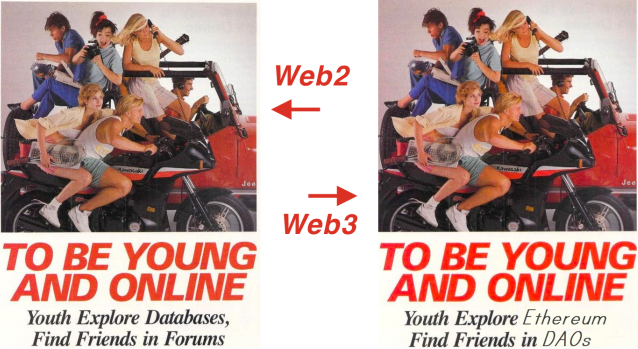
Has been updated by someone of this age to:
TO BE YOUNG AND ONLINE
Are you ready for this era? If you haven't already, please:
